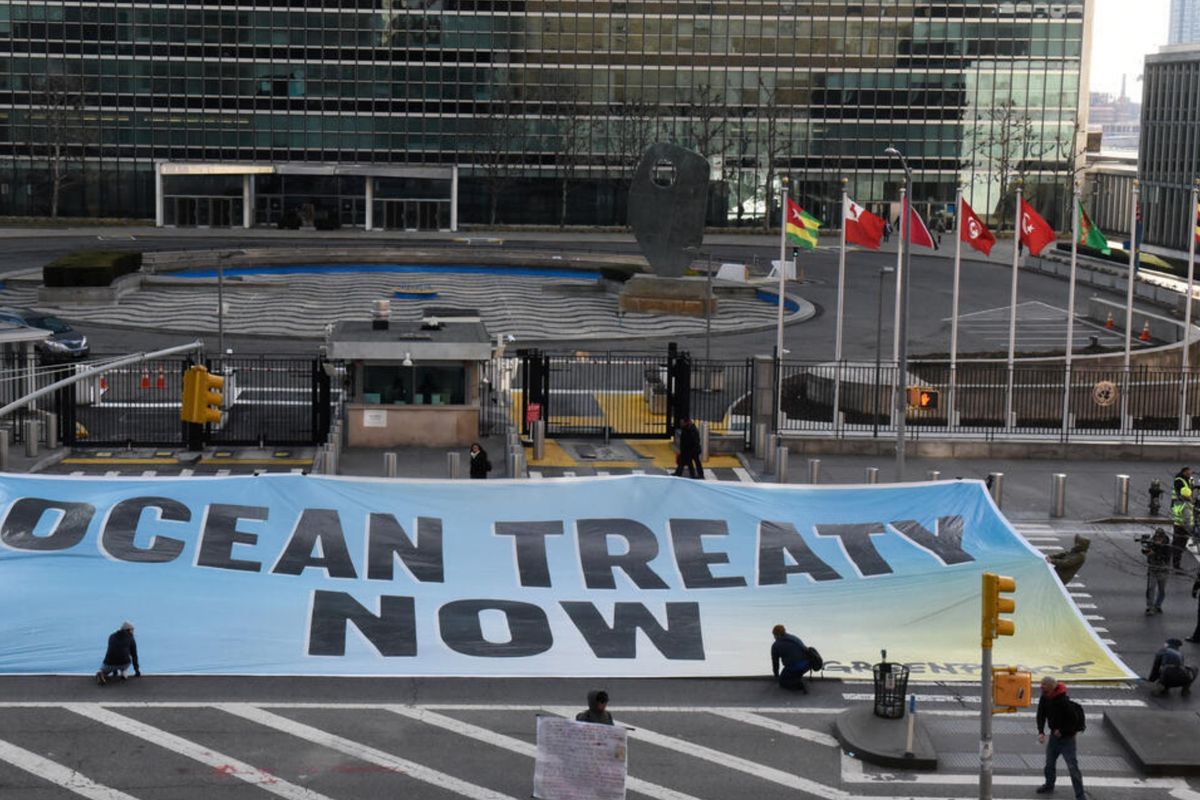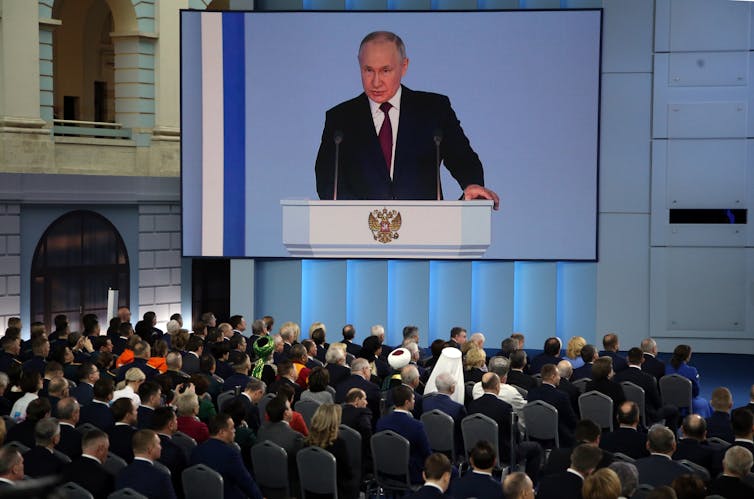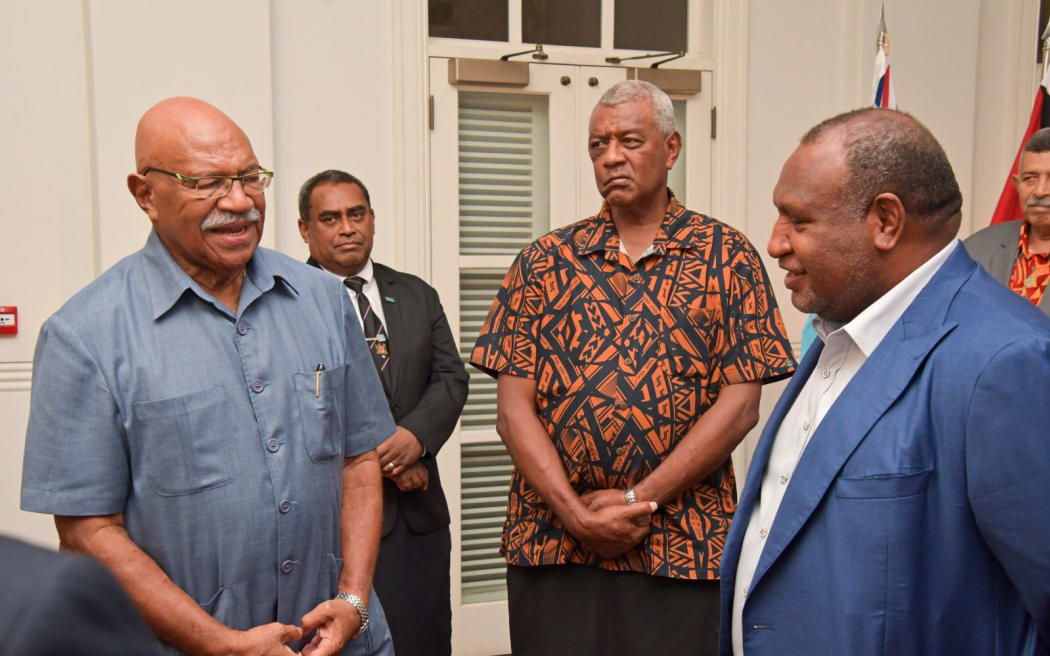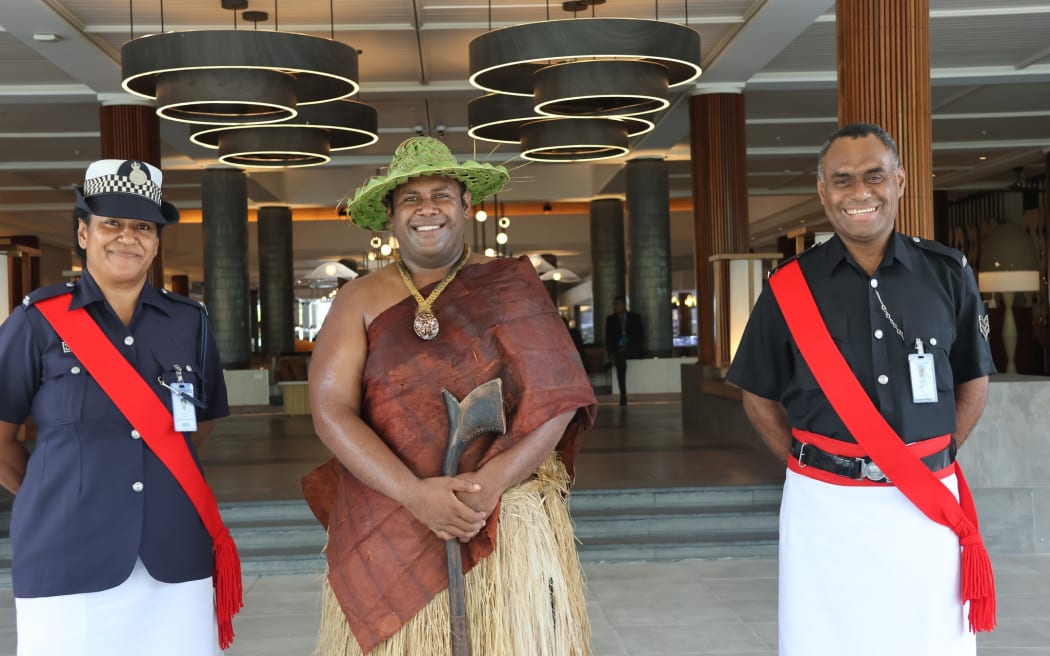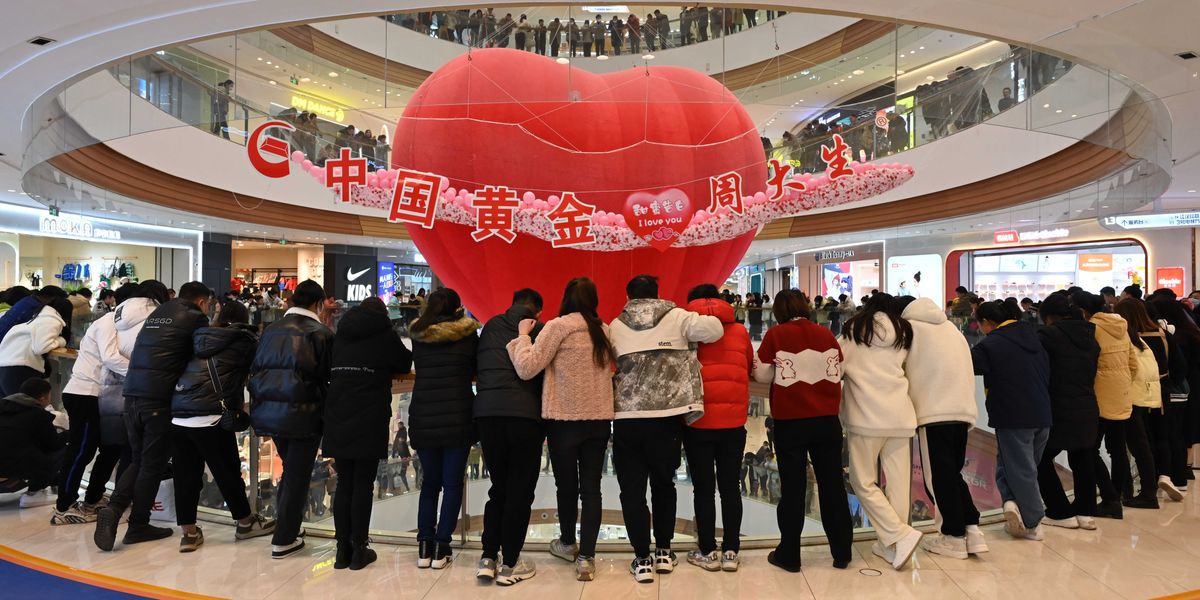
“Light at the end of the tunnel” was an iconic phrase used by the warmongers who kept the U.S. in Vietnam long after the War had been lost. The implication was that insiders could see through the fog of war and know that things were getting better. It was a lie.
In January 1966, long before the military height of the War, Secretary of Defense Robert McNamara told President Johnson that the U.S. had a one-out-of-three chance of winning on the battlefield. But Johnson, like Eisenhower and Kennedy before him, and Nixon after him, didn’t want to be the first American president to lose a war. So, he ginned up a simplistic lie and “soldiered on.”
The lie was blown by the Tet Offensive in January 1968. More than 100 U.S. military installations were attacked in a simultaneous nationwide assault that stunned the U.S. The broadcaster, Walter Cronkite, then “the most trusted man in America,” bellowed on national television, “I thought we were supposed to be winning this damned thing.” It was the beginning of the end of the U.S.’ murderous and failed occupation.
We’re now facing another light-and-tunnel event, this time in Ukraine. Only now, it’s not the light at the end of the tunnel. It’s the tunnel at the end of the light. What do we mean by that?
Until now, it’s been all light. Remember when the scrappy Ukrainian forces were kicking the barbarian Russian hordes’ asses? When every development betrayed the Russians’ clod-footed strategy, its soldiers’ bad morale, its army’s poor provisioning and worse leadership, and the perilous political situation for Putin back home? The testosterone was flowing. The bravado was intoxicating. The exceptionalism was sublimely seductive. It was only a matter of time and pluck and determination before Ukraine would bloody the bully’s nose and show it what the West was made of.
Remember?
No more.
You can prosecute a war for only so long on the strength of smoke and mirrors, delusions and illusions, lies and press releases. Eventually, however, reality catches up with you. The thuggishly propagandized American citizenry couldn’t know it, but that catching up began in the first weeks of the War and has only accelerated since.
Within the first week of the War, Russia had destroyed Ukraine’s air force and air defenses. By the second week, it had taken out most of Ukraine’s armories and weapons depots. Over following weeks and months, it systematically demolished artillery shipped in from former Warsaw Pact, now NATO, countries in Eastern Europe. It dismantled the country’s transportation and fuel supply systems. It has recently taken out most of the country’s electrical infrastructure.
The Ukrainian army has lost an estimated 150,000 troops, a pace more than 140 times the rate of U.S. losses in Vietnam. This, at a time when 10 million of its formerly 36 million people have fled the country. The military is down to dragooning 16-year-old boys and 60-year-old men to man the barricades. It cannot get replacement ammunition. Russia has knocked out some 90% of Ukraine’s drones, leaving it largely sightless. Delivery times for the tanks that are the hoped-for “game changer” are running into months and years. Not that that will matter.
Remember all the other failed “game changers”? The M777 howitzers and the Stryker armored fighting vehicles? The HIMARS multiple rocket launchers and the PATRIOT air defense systems? All were going to turn the tide at one time. All have proven impotent to stop Russia from seizing 20% of Ukraine’s territory and annexing it and its people to Russia.
The U.S. lost the economic war, as well. Remember Joe Biden’s delusional prediction that the U.S. would see that “the ruble will be reduced to rubble”? And that “the most stringent sanctions regime in history” was going to “weaken” Russia, perhaps even leading to Putin’s overthrow? Most of it backfired, badly. Last year, the ruble reached its highest exchange rate in history. Russia’s 2022 trade surplus of $227 billion was up 86% from 2021. The U.S.’ trade deficit over the same period rose 12.2%, and is approaching $1 trillion.
As a result of all of the above and more, the tide of insider opinion has turned against the War. Senior officials in Europe are talking openly about how the losses are unsustainable and they need to get back to security architectures that prevailed before the poisoned CIA-supported coup in Maidan in 2014. Mark Milley, Chairman of the Joint Chiefs of Staff, recently let slip that “It will be very, very difficult to eject the Russians from all of occupied Ukraine in the next year. The Washington Post warned recently that Ukraine faced a “critical moment” in the war, belaboring the fact that U.S. support was not limitless and would soon be reached. Hint. Hint.
The Rand Corporation, one of the U.S.’ best-connected strategic whisperers, just published a report stating that “The consequences of a long war far outweigh the benefits.” It explicitly states that the U.S. needs to husband its resources for its more important upcoming conflict with China. Newsweek headlined that “Joe Biden Offered Vladimir Putin 20 Percent of Ukraine to End War.” It also revealed that “Nearly 90 percent of the world isn’t following us on Ukraine.” Vast swaths of Latin American, Africa, and Asia refuse to support the U.S. in its demand for sanctions against Russia.
These are not “Light at the end of the tunnel” divinations. Quite the contrary. If there’s a common thread running through it all it is the sickening recognition that the war is lost, militarily, economically, and diplomatically, that there is no plausible scenario in which those losses will be turned around by soldiering on, and that what is needed now is a hide-the-loss, get-out-any-way-you-can, face-saving exit strategy.
That will not be available, either. That’s where the tunnel at the end of the light comes into play.
Even before the U.S. and its NATO puppets undertook the War, the rest of the world—and that means most of the world—was congealing itself into an anti-Western economic and security bloc. Led by China and its strategic ally, Russia, that bloc includes more than a dozen trade and security organizations. Those include the BRICS confederation of Brazil, Russia, India, China, and South Africa, working explicitly to devise multi-polar institutions to stand up to the U.S.’ unipolar hegemonic model.
It includes the Shanghai Cooperation Organization, a security compact made up of leading nations from east, central, and south Asia, including China, Russia, India, and soon, Iran, Turkey, and Saudi Arabia. It is explicitly working to devise measures to prevent the kind of predatory military assaults the U.S. carried out against Iraq, Libya, Somalia, Yemen, and Afghanistan.
The organizing economic engine behind these efforts it is China’s Belt and Road Initiative. BRI is a dizzyingly ambitious plan to connect Asia and more than 100 nations with 21st Century economic infrastructure, everything from highways and high-speed rail lines, to power generation, energy pipelines, communication systems, cities, ports, and more. It is critical to understand why BRI poses such daunting challenges to U.S. supremacy in the world.
Infrastructure is so powerful because it spins off a vast, unimaginable array of secondary, and tertiary economic benefits. It was the railroads in the nineteenth century that bound the U.S. together as the world’s first continental-scale market. Manufacturers could produce for a larger market, and, therefore, at larger scale, and, therefore, at lower cost, than could producers anywhere else on earth.
The railroads made the U.S. the largest market in the world for iron, steel, machine tools, grading equipment, farm equipment, and scores of other commercial and industrial products essential to a modern industrial economy. The U.S. began the 1800s with 1.5% of the world’s GDP. It ended the century with 19% of a four-times larger number, making it the largest economy in the world.
Similarly, automobiles. People think it was Henry Ford and mass production that made the Twentieth Century “The American Century.” In fact, it was the build-out of millions of miles of roads and, later, interstates, without which automobiles would have remained expensive playthings of the wealthy. Those roads stitched the country together into an asphalt network that allowed individual mobility, by virtually anybody, anywhere, down to every street address in the country. The world had never seen anything like it.
The secondary and tertiary economic effects were astounding, everything from the world’s largest markets for steel, glass, plastics, and rubber, to gasoline, diesel, highway construction on a continental scale, repair shops and drive-ins, to the entire panoply of culture we know of as suburbia. The Twentieth Century was the Century of the Automobile. The infrastructure the U.S. built to make it possible was the major reason—at least economically—that the U.S. led the world for most of that century.
China is now proposing to do the same for Asia in the Twenty-First Century, but on a much larger scale. It is leading an infrastructure build-out that will dwarf Eisenhower’s Interstate highway system. It will serve most of the five billion people in Eurasia, thirty TIMES more than the 150 million people Eisenhower’s project helped.
Wisely, China has ensured that all of the 100+ nations joining BRI are enriched by their participation, whether building themselves up domestically, or extending their reach internationally. It is the largest, most compelling, geographically extensive, nationally inclusive, mutually enriching economic enterprise in the history of the world. The U.S. is not part of it.
Finally, there is the matter of the dollar. Since the Bretton Woods Agreement of 1944, the global economy has used the dollar as the primary currency of international trade. This has given the U.S. an “exorbitant privilege” in that it can essentially write an unlimited stream of hot checks to the world, because countries need dollars to be able to conduct international commerce. The U.S. “sells” them dollars by issuing Treasury debt, which is a universally fungible international medium of exchange.
One of the consequences of this arrangement is that it has allowed the U.S. to spend far beyond its means, running up $32 trillion of debt since 1980, when its national debt stood at a mere $1 trillion. The U.S. uses this debt to, among other things, fund its gargantuan military with its 800 military bases around the world, which it uses to do things like destroy Serbia, Libya, Iraq, Afghanistan, Syria, Somalia, and a host of lesser predations on other countries. All the world sees this and is repulsed by it.
The world sees how dollar hegemony underwrites the U.S.’ ability to carry out or attempt coups in Honduras, Venezuela, Peru, Bolivia, Kazakhstan, Pakistan, Myanmar, Belarus, Egypt, Syria, and, of course, Ukraine, among others. And these are just those in the past two decades.
The same dollar hegemony underwrote U.S. predations in the latter part of the Twentieth Century against Iran, the Dominican Republic, Guatemala, Vietnam, Nicaragua, Cuba, Chile, Congo, Brazil, Indonesia, and dozens of other countries. Again, the rest of the world sees this. U.S. citizens, rapturously oblivious in their hermetically sealed media bubble, do not.
The world saw how the U.S. stole $300 billion of Russian funds that were held in Western banks, part of its sanctions regime against Russia for its role in the Ukraine war. They’ve seen how the U.S. has carried out similar thefts against dollar-denominated funds of Venezuela, Afghanistan, and Iran. It sees how the Federal Reserve’s raising of interest rates to take care of U.S. needs makes capital flow out of other countries, and how it makes their currencies fall, forcing inflation on them. Not a single country in the world is left untouched.
The cumulative impact of these facts is that many countries would rather not be held hostage to the implicit and explicit negative consequences of dollar hegemony. They also want to remove the “exorbitant privilege” that they believe the U.S. has abused to their individual and collective detriment.
They have begun—again, led by Russia and China—to build an international finance and trading system that doesn’t rely on dollars, that uses countries’ local currencies, gold, oil, or other assets to trade. This received special impetus last year when Saudi Arabia announced it would begin accepting Chinese yuan in exchange for its oil. Oil is the world’s most valued internationally-traded commodity, so the perception is that a dam is beginning to break.
It will take years before an equally functional substitute for the dollar is devised but what began a few years ago as a trickle has gained momentum and urgency as a consequence of U.S. actions in Ukraine. When the dollar is no longer the world’s international reserve currency and nations don’t need dollars to trade with each other, the U.S. will no longer be able to fund its massive budget and trade deficits by writing hot checks. The withdrawal will be agonizing and will greatly circumscribe the U.S.’ role as global hegemon.
U.S. actions in Ukraine have driven together its two greatest adversaries, Russia and China. They, joined by India, Turkey, Saudi Arabia, Iran and dozens of other countries, are carrying out a Mackinder-feared Eurasian integration that will leave the U.S. outside of the world’s largest and most dynamic trading bloc.
The U.S.’ military failure has advertised, once again (after Iraq and Afghanistan), the relative impotence of U.S. military solutions. Yes, it can still destroy small, defenseless countries like Serbia, Libya, Afghanistan, and Iraq. But against a peer competitor that has chosen to stand up to it, the U.S. has, frankly, been handed its ass. All the world can see it.
Events have shown the hollowness of U.S.-led economic and financial systems, as well, especially compared to China. China’s economic performance has far surpassed that of the U.S. It has lifted more people out of poverty more quickly than any country in the history of the world. Its growth has made it the largest economy in the world in purchasing power parity terms. While average inflation-adjusted incomes in the U.S. are little higher than they were 50 years ago, incomes in China are up more than 10 TIMES over the same period. And it has done this without brutalizing and pillaging other nations that refuse to bend to its hegemonic will.
And, the War has betrayed, as nothing else possibly could, the diplomatic isolation of the U.S., with the vast majority of the world’s people refusing to implement U.S.-demanded sanctions against Russia. Its destruction of the Nord Stream gas pipeline is recognized as the greatest act of state-sponsored terrorism in history, easily surpassing 911 in terms of the hundreds of millions of people it will hurt. And this, to one of its putative allies, Europe. Imagine what happens to its enemies.
This is the tunnel at the end of the light, a multi-polar as opposed to a unipolar world. It means increasing isolation of the U.S. from the rest of the world, the closing in of options, the narrowing of opportunities, the loss of strategic primacy that once graced the greatest power in the history of the world. It will mean dramatically reduced power and influence vis-à-vis the U.S.’ strategic adversaries, and markedly constrained ability to operate militarily, economically and financially in the world, what with the hot checkbook soon to be taken away.
In twenty or thirty years, the U.S. will still be a substantial regional power, perhaps like Brazil in South America, Iran in West Asia, or Nigeria in Africa. But it will not be the global hegemon it once was, able to project and inflict power in the world as it has done for the last century. The U.S. abused its providential anointment as the exceptional nation. That abuse has been recognized, called out, and is now being acted against by most of the other nations of the world. The future will be very different for the U.S. than it has been for the past 80 years, since the end of World War II when it towered over the rest of the world like a giant among pygmies. Ukraine will prove to have been the turning point in this transformation, the tunnel at the end of the light.
 Psychologists might call this finger-wagging projection–the old pot calling the kettle black routine. It is the US, not China, that is fueling the conflict with at least $45 billion dollars in ammunition, drones, tanks and rockets in a proxy war that risks–with one miscalculation–turning the world to ash in a nuclear holocaust.
Psychologists might call this finger-wagging projection–the old pot calling the kettle black routine. It is the US, not China, that is fueling the conflict with at least $45 billion dollars in ammunition, drones, tanks and rockets in a proxy war that risks–with one miscalculation–turning the world to ash in a nuclear holocaust.


